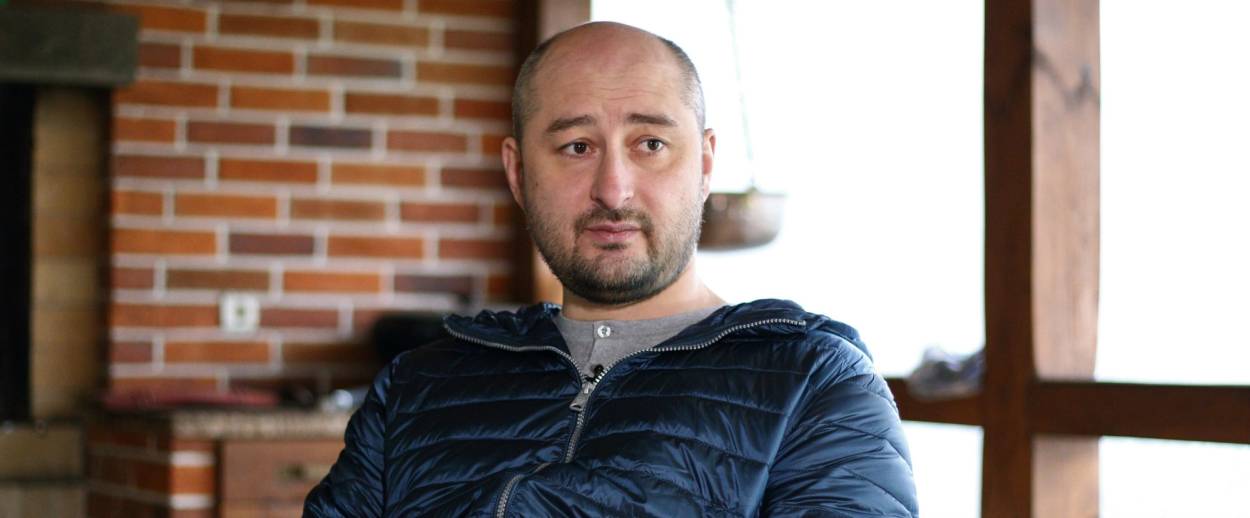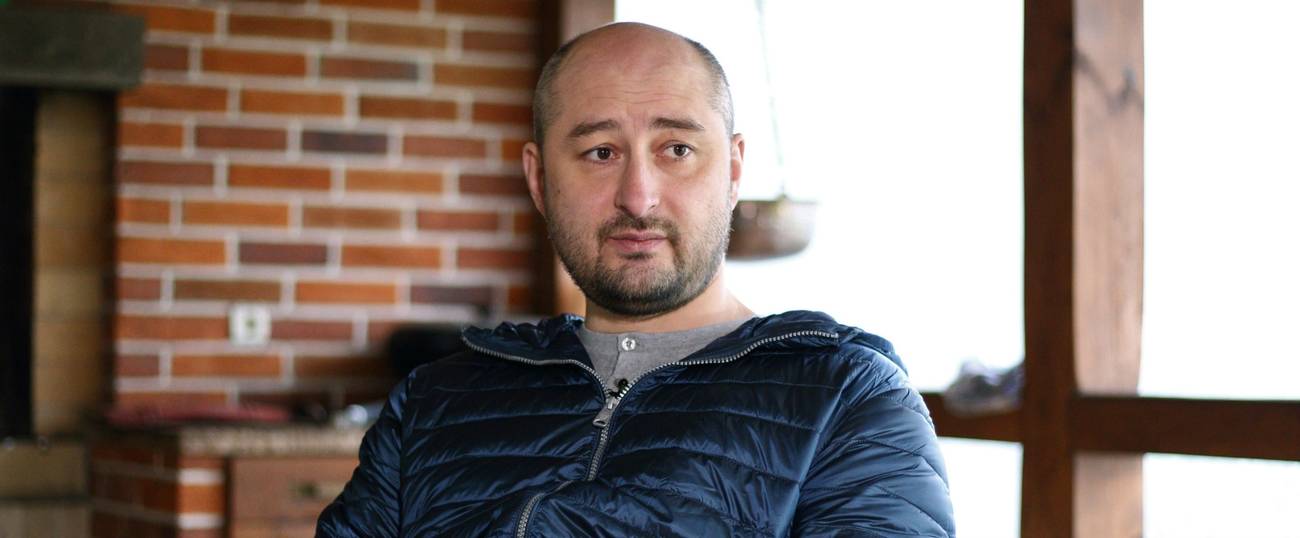About That Assassination in Kiev…
Less than 24 hours after he was allegedly assassinated, Putin critic Arkadi Babchenko appears at a press conference to speak of a Ukrainian sting operation to catch his assailants




In a totally surreal turn of events, less than 24 hours after it was reported that prominent Russian war journalist Arkadi Babchenko had been assassinated outside of his home in Kiev, he had risen from the dead. He was reported by the Ukrainian government to have died of three gunshot wounds to the back while being transported to a hospital in the back of an ambulance. Babchenko, who is the author of a beloved memoir of his war service in Chechnya, and who had fled to Kiev from his native Russia last year, stunned the post-Soviet world when he appeared alive and well at a Kiev press conference yesterday in a black hoody. The journalist appeared to be unscathed, standing with Vasyl Hrytsak, the head of the SBU, Ukraine’s main intelligence agency.
Learning several months ago of an impending assassination attempt on the high-profile journalist, the Ukrainian intelligence service created an audacious sting operation to entrap both the killer and the Russian agent who was organizing the attempted hit. The SBU chief released details of the plot, which was allegedly executed by an eastern Ukrainian separatist who was to have been paid $30,000 for the hit by Russian agents. Another $10,000 were promised to a middleman who found the assassin. The Ukrainian president thanked the SBU for having a tremendous success, and the interior minister smirked over yesterday’s accusations that the Ukrainian state was not capable of defending people living on its territory.
Babchenko gave his press conference in Ukrainian, which he seems to have learned to a passable level since having fled to Ukraine last autumn. He began with an apology to his wife, for having put her through what one can imagine was probably the worst night of her life.
In a wonderful touch, the influential Ukrainian parliamentarian and interior ministry spokesman, Anton Gerashenko, who had publicly confirmed that Babchenko had been killed yesterday, used a literary justification for the misdirection: “After all, Arthur Conan Doyle’s hero Sherlock Holmes successfully used the same method of staging his own death in effective investigations of complex and intricate crimes. No matter how painful it must have been for his family and Dr. Watson.”
An important fact largely missing from the deluge of Western commentary was the fact that the Ukrainian special services have certainly engaged in this behavior before, most notably in a case relating to the Ukrainian Odessa MP Alexi Goncharenko, who was “kidnapped” last year for his own protection. In Babchenko’s case, however, many of his fans were devastated to learn that the beloved journalist was executed in broad daylight.
The scheme has demonstrated a surprising capacity from the Ukrainian intelligence services to protect high-risk targets and carry out complex dragnet operations that many commentators and experts had doubted they could pull off. Still, the incident ignited a passionate debate on the necessity of the fake operation and of Babchenko’s faked death, with sharp divisions and arguments erupting over both social media and with foreign journalists and policy experts almost uniformly critical of the operation. On the Maidan, on the other hand, where crowds had gathered to mourn the writer, many were suddenly popping Champagne bottles.
Alexa Chopivsky, executive director at The American Center for a European Ukraine, told Tablet that “The plot on Babchenko’s life is yet another example of Moscow’s hybrid war strategy. Ukraine continues to serve on the frontlines, defending against Moscow’s civilizational battle with the West.”
On Twitter, meanwhile, the swaggering and irrepressible Babchenko wrote that “I promised to die at 96, having danced on the grave of Putin and taken a selfie.”
Vladislav Davidzon is Tablet’s European culture correspondent and a Ukrainian-American writer, translator, and critic. He is the Chief Editor of The Odessa Review and a Non-Resident Fellow at the Atlantic Council. He was born in Tashkent, Uzbekistan, and lives in Paris.